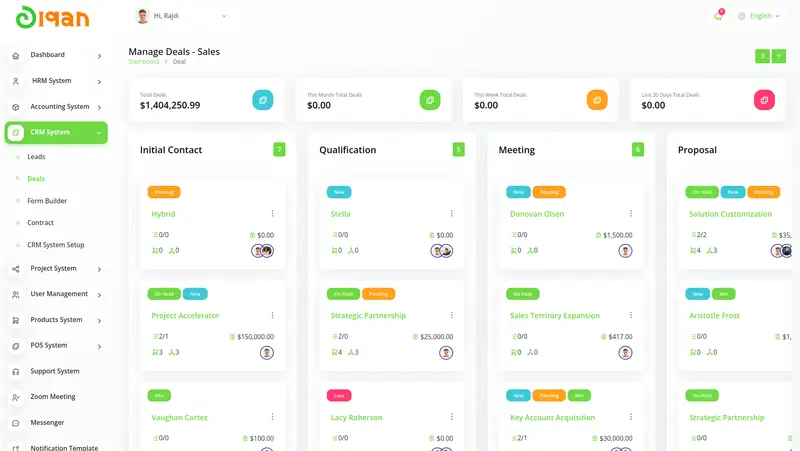In the dynamic landscape of modern business, the ability to effectively manage products from ideation to launch is paramount to success. This is where product management tools step in as invaluable assets, offering organizations the means to streamline processes, enhance collaboration, and drive innovation. In this article, we’ll explore the significance of product management tool in today’s business world and how they empower teams to bring exceptional products to market.
Understanding the Essence of Product Management Tools
Imagine you’re part of a team tasked with developing a groundbreaking new product. From brainstorming ideas to market research, prototyping, and launch planning, the journey is rife with challenges and complexities. Product management tool serve as your guiding light through this labyrinth, providing a centralized platform to organize, prioritize, and execute every aspect of the product development process.
Key Features That Define a Product Management Tool
- Idea Management: Every successful product starts with a spark of inspiration. Product management tools offer robust idea management features, allowing teams to capture, evaluate, and prioritize ideas from various sources, including customers, stakeholders, and internal teams.
- Roadmap Planning: A clear roadmap is essential for guiding the development journey and aligning stakeholders’ expectations. Product management tools enable teams to create and visualize product roadmaps, outlining key milestones, features, and timelines to ensure everyone is on the same page.
- Requirements Gathering: Understanding user needs and requirements is critical for developing products that resonate with the target audience. Product management tools facilitate requirements gathering and documentation, ensuring that the final product meets or exceeds customer expectations.
- Collaboration and Communication: Successful product development requires seamless collaboration and communication among cross-functional teams. Product management tools offer a variety of collaboration features, including task assignments, file sharing, and real-time communication channels, fostering teamwork and synergy.
- Agile Development Support: In today’s fast-paced business environment, agility is key to staying ahead of the curve. Product management tools support agile development methodologies, allowing teams to iterate quickly, adapt to changing market conditions, and deliver value to customers faster.
Benefits of Embracing a Product Management Tool
- Streamlined Processes: By centralizing product-related activities and data, product management tools streamline processes, minimize redundancies, and eliminate inefficiencies, enabling teams to work smarter, not harder.
- Enhanced Collaboration: Product management tools break down silos and facilitate collaboration among cross-functional teams, including product managers, developers, designers, marketers, and sales teams. This fosters a culture of collaboration, creativity, and shared ownership of the product vision.
- Improved Decision-Making: With access to real-time data and insights, product managers can make informed decisions at every stage of the product development lifecycle. Product management tools provide analytics and reporting features, allowing teams to track progress, identify trends, and pivot strategies as needed.
- Faster Time-to-Market: By streamlining workflows, automating repetitive tasks, and fostering collaboration, product management tools help accelerate the product development process, reducing time-to-market and giving organizations a competitive edge.
- Customer Satisfaction: Ultimately, the success of a product hinges on its ability to meet or exceed customer expectations. Product management tools enable teams to gather feedback, iterate on features, and deliver products that delight customers, driving long-term loyalty and satisfaction.
Real-Life Success Stories
- Tech Startup Disrupts Industry with Agile Approach: A tech startup embraced a product management tool to support its agile development practices. By leveraging the tool’s collaboration features, the team was able to iterate rapidly, respond to market feedback, and launch a disruptive product that revolutionized the industry.
- Established Company Streamlines Product Development: An established company sought to streamline its product development process and improve time-to-market. By implementing a product management tool, the company was able to centralize communication, prioritize features, and empower cross-functional teams to collaborate more effectively, resulting in faster product launches and increased market share.
Conclusion
In conclusion, product management tools are indispensable assets for organizations looking to innovate, collaborate, and succeed in today’s competitive business landscape. By providing a centralized platform for idea management, roadmap planning, requirements gathering, and agile development support, these tools empower teams to bring exceptional products to market faster and more efficiently than ever before. So, whether you’re a startup looking to disrupt the status quo or an established company striving for continuous improvement, embracing a product management tool is the first step towards unleashing success and driving meaningful change in your organization.
Visit for more information: Olqan
